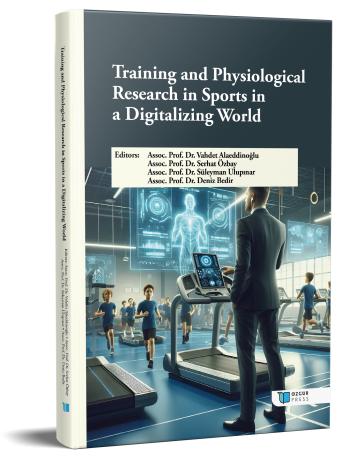
Training and Physiological Research in Sports in a Digitalizing World
Synopsis
In the face of rapidly advancing digital technologies, the field of sport sciences has entered an era of unprecedented transformation. From athlete monitoring and individualized performance planning to physiological assessments powered by artificial intelligence, digitalization now forms an indispensable layer in both theoretical inquiry and applied practice. As this new paradigm unfolds, the convergence of training science and digital innovation compels scholars and practitioners alike to critically explore how emerging tools reshape methodologies, challenge traditional frameworks, and offer novel solutions for enhancing athletic performance.
This book, Training and Physiological Research in Sports in a Digitalizing World, emerges in response to this profound disciplinary evolution. It brings together a collection of original academic contributions that reflect contemporary perspectives at the intersection of exercise physiology, training methodology, digital health, and sports technology. The chapters compiled herein examine not only the functional integration of digital tools in the design and evaluation of training programs but also the broader epistemological and ethical implications of such integration. Through empirical findings, conceptual models, and critical analyses, the authors aim to inform future-oriented approaches to scientific inquiry and applied sport practice.
The volume offers a multidimensional exploration of topics such as digital periodization strategies, adaptive feedback systems, wearable biometric technologies, and virtual training platforms. A recurring theme throughout the book is the notion that technological tools, when scientifically grounded, can enable more precise, individualized, and responsive training protocols. However, the authors also raise important questions regarding data validity, algorithmic transparency, and the preservation of human judgment in decision-making processes. These contributions reflect the belief that digitalization, while transformative, should remain accountable to the foundational principles of evidence-based practice and athlete well-being.
A notable strength of this book lies in the diversity of its contributors—scholars who bring disciplinary expertise, methodological rigor, and critical reflection to the challenges and opportunities of working in a digitalized sports environment. Their work traverses laboratory-based physiological assessments, applied training interventions, and theoretical discussions on the future of sport science research. By anchoring technological innovation within the broader contexts of pedagogy, performance optimization, and ethical responsibility, the book bridges the gap between scientific theory and practical application.
We anticipate that this volume will serve as a valuable resource for exercise scientists, strength and conditioning professionals, coaches, graduate students, and all stakeholders interested in the evolution of sport training and physiology in the context of digital transformation. Furthermore, we hope it will inspire dialogue, collaboration, and innovation across disciplines as we continue to reimagine the role of science in shaping the future of sport.

